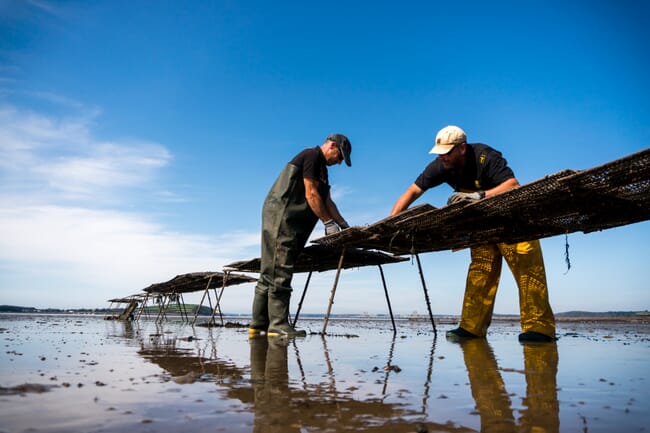
© Aquaculture Industry Wales
The fishing and aquaculture sectors have an important role in contributing to meet Welsh Government net-zero targets by 2050, but currently there are no baseline carbon emissions data available for those sectors in Wales.
Seafish, the public body that supports the UK seafood industry, has been commissioned by the Fisheries Division of the Welsh Government to produce the first ever baseline carbon footprint for commercial Welsh fisheries, covering emissions up to the point of landing and aquaculture production up to the first point of sale.
The study will focus on wild-capture species of economic importance to the Welsh fleet, including European seabass, cockle, brown crab, European lobster, king and queen scallops, common whelk, skate and rays.
Data on aquaculture species, including mussels and oysters, is also being collected.
Samira Anand, Welsh industry engagement manager at Seafish, said in a press release: “We know that Welsh fishers are already taking steps to fish efficiently and responsibly.
“This project is about capturing that progress and providing the baseline to help support the sector’s transition to net-zero.
“The more input we get from industry, the stronger and more useful the results will be, so I would really encourage industry members to engage with this project.”
Seafish needs input directly from the commercial catching and aquaculture sectors so is asking skippers, vessel owners and aquaculture operators to share information to help shape the work.
Contributions, including information on gear lifespan, fuel use and examples of carbon saving measures already in use will ensure that estimates reflect the operating environment of the Welsh fleet.
The work will support delivery of the climate change objective included in the Fisheries Act 2020 which established a plan for the UK and devolved administrations to manage fisheries, aquaculture and marine conservation.
By establishing the carbon footprint of Welsh fisheries the Welsh Government will be better placed to ensure that adverse effects of fishing and aquaculture are minimised.
For more information on how and where you can participate, please contact jesse.drake@seafish.co.uk



